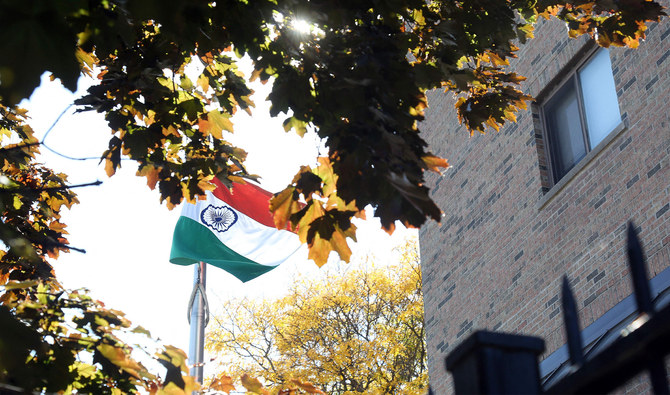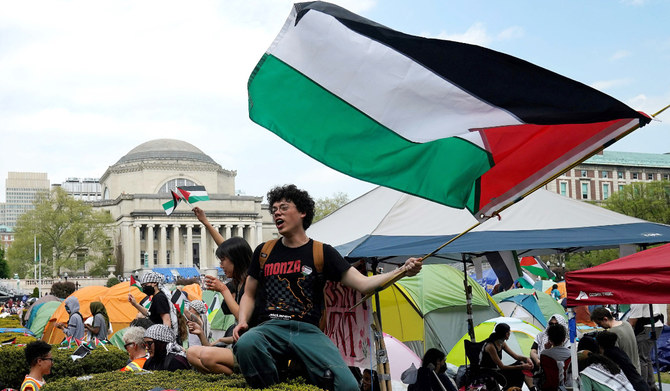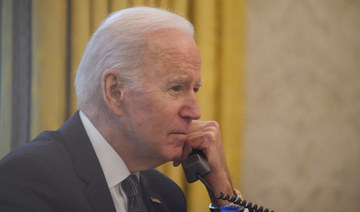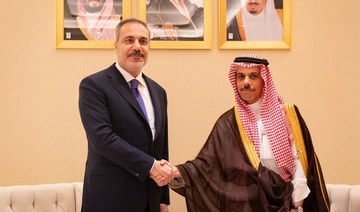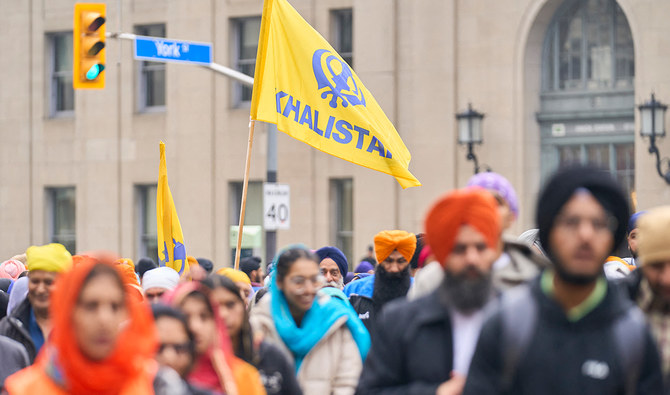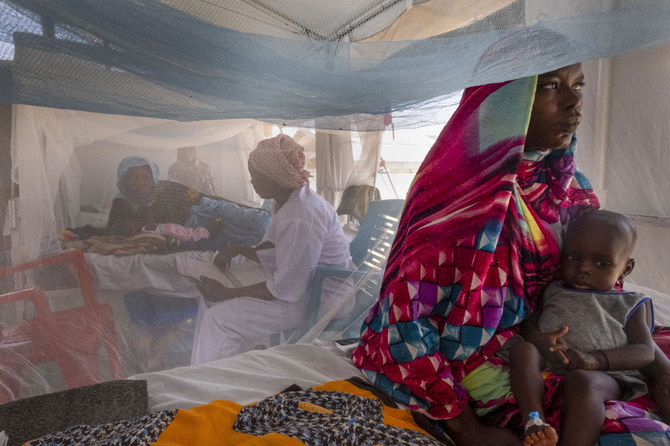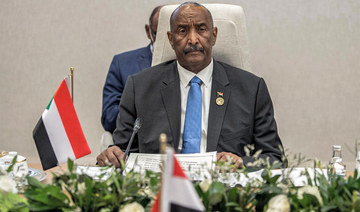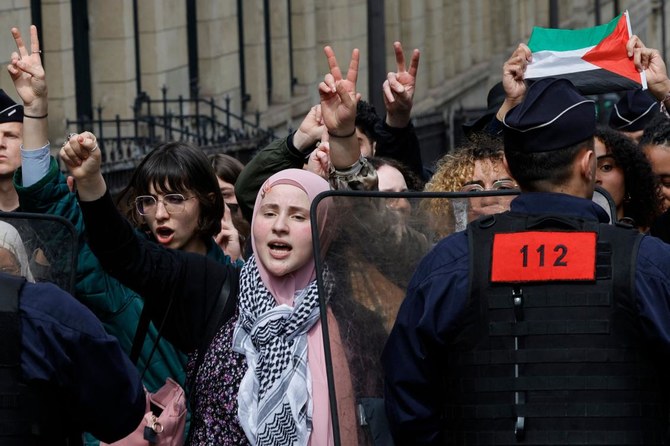NEW DELHI: India’s external intelligence service is a feared foe in its neighborhood: Pakistan, Sri Lanka and Nepal have all accused it of political meddling and involvement with outlawed groups that have perpetrated acts of violence.
Now, Canadian Prime Minister Justin Trudeau’s allegation last month that Indian government agents were involved in the June killing of Sikh separatist leader Hardeep Singh Nijjar in a Vancouver suburb has thrust Delhi’s secretive Research and Analysis Wing (RAW) into the global spotlight.
India angrily denied the allegations and demanded that Canada — which expelled RAW’s station chief — furnish evidence. Ottawa said it shared proof with allies, but will not release it publicly.
Reuters spoke to four retired and two serving Indian security and intelligence officials familiar with RAW who said the agency was galvanized to play a more assertive international role after the 2008 Mumbai attacks that left 166 people dead. The officials spoke on condition of anonymity to discuss sensitive matters.
Four officials said that RAW expanded its reach in Western nations gradually after 2008. One current official cited India’s failure to secure the extradition of a US citizen convicted of involvement in the Mumbai attack as a key motivation for RAW to increase its sway in the West.
While in its immediate neighborhood RAW has advanced signal and technical intelligence capabilities, in the West the agency remains largely dependent on human intelligence for its operations, according to one serving and one former official.
RAW, like other arms of India’s national security apparatus, has been emboldened by Prime Minister Narendra Modi, who has bolstered India’s defense capabilities since his 2014 election and built a strongman image, five of the officials said.
Modi’s office did not respond to a request for comment for this story.
RAW Chief Ravi Sinha, the only serving official publicly affiliated with the agency, did not return messages seeking comment. Sinha reports to Modi’s office through the powerful National Security Adviser Ajit Doval, who also did not return a request for comment.
All six officials denied that RAW engages in targeted killings, noting that the agency has no mandate for such operations.
Fallout from the Vancouver incident has also raised concerns that RAW will come under greater global monitoring, Indian intelligence officials and analysts said.
“The current developments have undoubtedly increased global curiosity about RAW,” said Dheeraj Paramesha Chaya, an expert on Indian intelligence at Britain’s Hull University. He said that greater Western scrutiny of RAW’s activities might also bring a closer understanding of Delhi’s security concerns.
The West has expanded military and intelligence cooperation with Delhi as tensions with China have grown, with Washington agreeing in 2020 to share sensitive mapping and satellite data with India.
In the short term, Canada’s assertion might make it harder for Western countries to trust RAW, one of the officials said.
Ottawa and Delhi have been in a diplomatic standoff since Trudeau made his allegations in public. India has suspended the issuance of new visas to Canadian citizens and demanded that Ottawa reduce its diplomatic presence.
Canada had unsuccessfully pushed allies such as the US to issue a joint statement condemning India, the Washington Post reported.
EXPANDING PRESENCE POST-MUMBAI
RAW has long been identified as an arch-rival by Pakistani security leaders. Most recently, Islamabad — without providing evidence — blamed RAW for a suicide blast near a mosque on Friday that killed over 50 people. An Indian Foreign Ministry spokesperson did not return a request for comment on the accusation.
The Indian government publicly blamed Islamabad for the 2008 Mumbai attacks — widely seen by policymakers in Delhi as RAW’s most recent major failure — which Delhi says were carried out by Pakistan-based militants.
Islamabad denied that its agents were involved.
The agency enhanced its intelligence gathering operations in the West, including North America, due to the role of US citizen David Headley, now serving a 35-year prison sentence in Chicago on charges that included scouting locations for the Mumbai attacks, one of the officials said.
American law enforcement was warned before the attack that Headley had terrorism ties, according to US media reports. Top Indian policymakers have publicly suggested that he was a US “double agent,” and Delhi’s failure to secure his extradition frustrated RAW, the official said.
The United States, which gave India access to Headley, has denied he was a double agent. The American Embassy in Delhi did not return a request for comment.
RAW has had a small Western presence since its inception in the 1960s, when it inherited the London station of the Intelligence Bureau, a colonial-era agency that now focuses on domestic security, according to Chaya, the Hull professor.
The large Indian diaspora in countries like the United States, Canada, Britain and Australia is an asset, two officials said.
But the risk of Indian agents coming under surveillance in their host nations means they are used for political influence campaigns rather than security operations, they said.
The Canadian Broadcasting Corporation reported in 2020, citing government and intelligence sources, that the country’s security services were monitoring the possibility of India and China using their diaspora to influence candidates in that year’s federal election.
“Our footprint is growing in parts of the world which were not important earlier,” a recently retired senior RAW official said, without providing specifics.
RAW has “long been associated with direct action ... including targeted killings and disappearances” in its immediate neighborhood, said Adrian Levy, co-author of a book on South Asian spy agencies, adding that such actions were arranged via proxies, which gave India deniability.
Delhi has generally not seen a need for covert operations outside South Asia because it has friendly relations with many countries that enable it to secure aims such as extradition and getting access to people of interest, one official said.
The agency has been “super careful” about its operations in the West, said Levy. While RAW has arranged the movement of cash, weapons and men to other locations from Europe, “direct action was reserved for South Asia and Southeast Asia,” he said.
POLITICAL SUPPORT
RAW operates from a drab office complex with no signage in central Delhi. Reuters was unable to determine specifics about the agency’s operations, such as its budget and its size.
It split off from the Intelligence Bureau in 1968 and was initially tasked with keeping a keen eye on China after Delhi’s humiliation in their brief 1962 war. RAW had close links to Israel’s Mossad and the CIA since its inception, according to a 2008 report by the US Council on Foreign Relations, a think tank that tracks Indian foreign and security policies.
One serving and one retired official told Reuters that RAW’s political masters in the Modi government demanded that it expand its “presence, significance and capabilities.”
“What they have done is to give confidence to the organization,” one of the officials said.
Two serving and one retired RAW agents told Reuters that some previous governments did not offer sufficient resources and political support.
Under Modi, India’s national security community “has become far more proactive, in terms of diplomacy (and) deal making but also direct action, analog and digital,” said Levy, the intelligence writer.
But as Indian intelligence services have gained more capabilities and far greater reach, the legal framework they operate in has not kept pace with how modern democracies manage espionage operations, he said.
RAW was created under a government order with no formal parliamentary or constitutional backing and is exempt from legislative oversight, according to PRS, a research group that studies India’s federal and state legislatures.
“This means there is less oversight, and fewer legal hurdles ... as real command and control is centralized” with the prime minister, Levy said.



